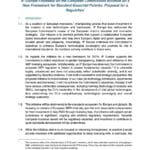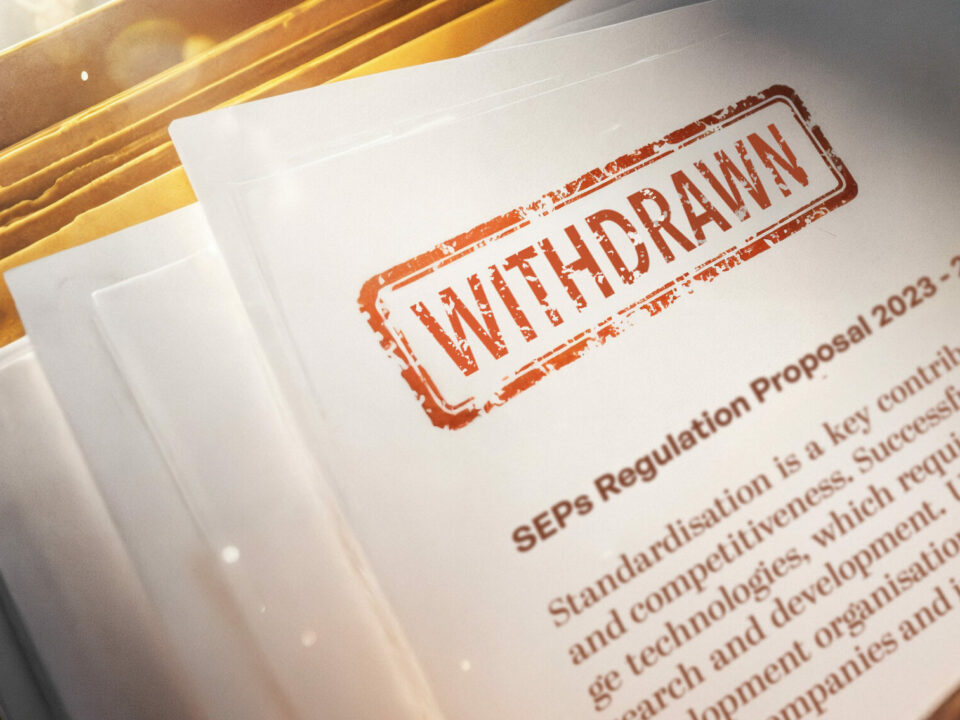Fail: Commission proposal on standard-essential patents (SEPs) would not deliver on its objectives
IP Europe supports the European Commission industrial strategy and its stated aims of making the licensing of standard-essential patents (SEPs) more transparent, efficient, and predictable. The Commission’s initiative published on 27 April 2023, however, would fail to deliver on these objectives.
Rather, the Commission’s proposal, if implemented as-is, would undermine incentives to contribute to open standards development and invest in the development of future critical enabling technology. It would harm technology innovators and SMEs. It would damage the EU’s leadership in the development of vital global technologies. And it would threaten the EU’s competitiveness, technological sovereignty, and overall strategic autonomy.
The Commission also proposes to deny access to justice in European courts to a particular class of SEP owners unless they comply with an arbitrary and highly prescriptive regulation–a regulation which would impose significant burdens on SEP owners.
The legal basis of the proposal is questionable given that the market for SEPs licences is global and the proposal is in conflict with the EU Charter of Fundamental Rights regarding the carrying on of a business, property rights and access to European courts. Also questionable is the idea of the Commission acting as a price regulator.
Moreover, the proposed measures are disproportionate to the objectives the Commission says it wants to achieve and the initiative lacks an evidential basis: its proposal fails to reflect the findings from its own studies.
We have already made many of these points in a series of articles on our blog. We have now expanded upon our arguments in our formal response to the Commission’s (belated) consultation. (Click on the thumbnail below to download our position paper as a PDF.)
About IP Europe
IP Europe is a coalition of research- and development-intensive organisations that champion an innovation ecosystem in which patents and open standards drive private investment in R&D-intensive technology and deliver progress. Its members include both licensors and implementers of patents including standard- essential patents.





